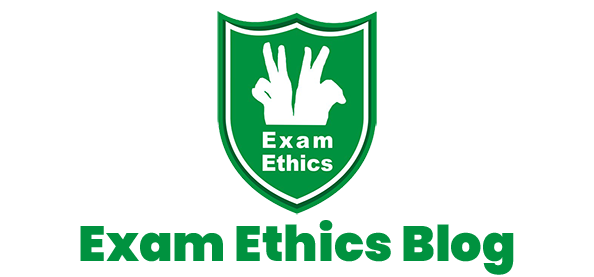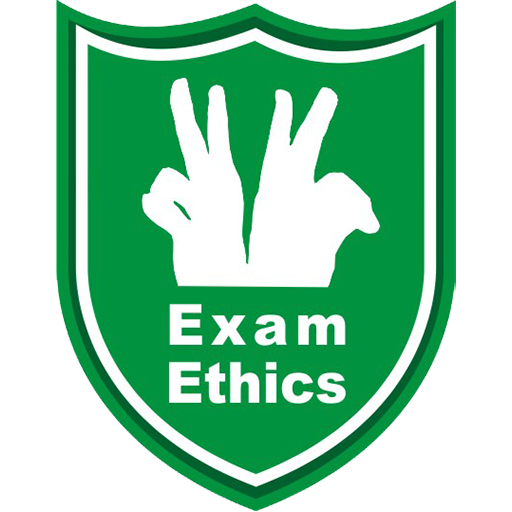Types of Exam Malpractice
They are many types of examination malpractices you must avoid.
1. Leaked question papers.
Concentrate on your revision and prepare well for the examination. Do not join the hunt for leaked question papers. In many cases, that is the easiest way to fail because in almost all cases, the leaked question papers are fake. And you can only reap failure when you rely on fake question papers. Besides, you stand the risk of having your result cancelled. Once a paper is known to have leaked through whatever means, such papers are invariably cancelled.
2. Collusion and Mass Cheating
Sometimes, entire classes, schools, or community are deceived into working in collaboration with ethics-unfriendly teachers, principals, supervisors or invigilators to commit mass cheating. In such cases the chances of having your result cancelled become high. Again, people who offer such collaboration do so for selfish financial reasons. It is never done in your best interest. Your best bet as ethic-friendly student is to find a way to secretly report the plan to the authorities, the examination body or to Exam Ethics Marshals. If you let it to go through, the result to be ceased will include your own.
3. Assault of Supervisors or Invigilators
Do not assault, intimidate, harass, or blackmail supervisors or invigilators. Such supervisors or invigilators are required to make reports which may lead to cancellation of result of those involved.
4. Continuous Assessment Malpractice.
Do not allow any person including your teacher to misrepresent your continuous assessment grades. Such people are telling lies about who you are and what your talents are. Again, they are only interested in the money you pay them.
5. Malpractice Involving Practical.
Refuse to be involved in rigging results of experiments that were never conducted. By getting involved, you are living against yourself to the effect that you have been taught how to conduct the practical. It is better to report that there are no equipment or re-agents to conduct the practical.
6. Forgery of marks, grades, or certificates.
Do not forge mark, grades, or certificate. Even if somebody offers to help you, say no. Such people are not interested in your success or welfare. They are only interested in the monetary gains they reap from the transaction.
7. Special Exam Magic Centres.
Take your examination in your school. Do not run around hunting for special centers in remote areas where invigilation and supervision will supposedly be lax. Say no to the inducement of some private tutorial centres and coaching schools who act as fronts for syndicates of fraudsters involved in perpetrating exam malpractice. Again, bear in mind that these people who offer to make such arrangements for you are only interested in the money you pay them. Some states have banned special centres and registration of new students in exit exam classes.
8. Impersonation
Never allow another person to take any examination for you. This is the worst thing you can do to your future prospect of success. You will never be able to determine your area of special talent or competence. Never agree to take any examination for another person, irrespective of the inducements or justifications. You are taking a great risk and you are not doing the person you are impersonating any good.
9. Touting.
Never use touts to smuggle out question papers or answer sheets or do other irregular things during examinations. Our research indicates that those who rely on touts perform worse than candidates who concentrate on writing their papers. Touts are only interested in their selfish gains and not in your success. Most of the answers by candidates traced to mercenaries and touts have been found to be wrong. Most of the students would have done better relying on their own abilities.
10. Foreign Materials
Smuggling foreign materials like chips, textbooks, and pages of notebook into the exam hall will do you no good. You end up distracting yourself and loosing concentration. Students who make notes on their handkerchiefs, shirts, currency notes, palms etc. also perform poorly in the examination. Even when they are not caught by the supervisor or invigilator, the still perform poorly due to anxiety, distraction, and lack of concentration. Of course, many students are caught resulting in the cancellation of their results. Allow your talent to manifest even if it means your “failing” the exam.
11. Sorting.
Sorting is a rampant form of corruption, academic dishonesty, and examination malpractice rampant in tertiary institutions. It involves blatant selling of marks, grades and degrees to intimidated students for cash, sex and other material benefits by unscrupulous lecturers.
There are persistent complaints by students and parents regarding intimidation, extortion, and sexual abuse of students by unscrupulous lecturers who have turned examination, evaluation and assessment systems in tertiary institutions into commercial cash-and-carry enterprises. Students who refuse to pay are failed irrespective of their performance.
Besides the grave psychological, sociological and educational consequences of sorting malpractice, the economic cost to students, parents and the nation is very high. A nationwide survey by Exam Ethics in 2015 indicates that not less than N50Billion is extorted from students in tertiary institutions each session with each student coughing out between N25,000 and N50,000 every session for purchase of marks, grades, and handouts. The survey indicate that thousands of female students are sexual abused by Sorting Lecturers each session. It is in your best interest to say no to any form of “sorting” and to report any such attempt.









